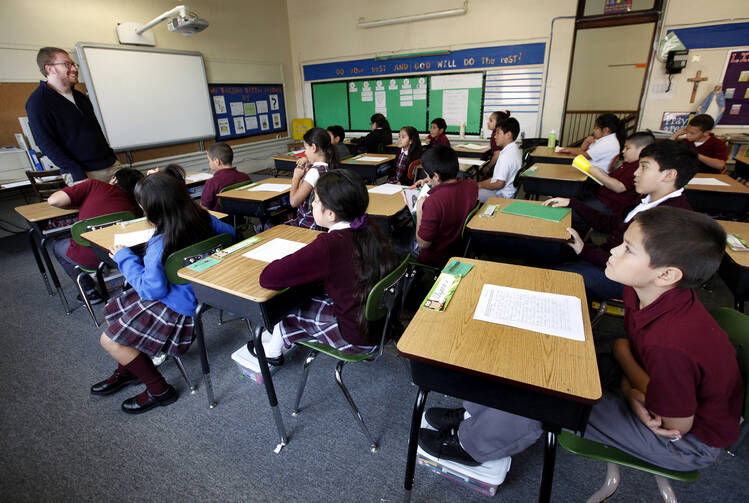What is the meaning of "school"? How do we understand its role as distinct from other centers of learning?
Continuing the summer examen I began last week, I've been thinking a lot about a passage from one of the foundational documents of the Jesuit Secondary Education Association (now the Jesuit Schools Network). In the "Jesuit High School of the Future," the authors called for:
An enlarged concept of what constitutes the “school environment”; an increase in the variety and number of experiences which are seen as part of the schooling process; the school viewed as a center for organizing, integrating and reflecting on student learning experiences no matter what their resource (e.g., television, family, outside educational agencies, work or service experiences, etc.) rather than a view of the school as a self-contained institution which itself supplies a total learning process and environment . . .
As I reflect on this passage, more questions come to mind: What, precisely, does the traditional model of a Jesuit high school (or college) offer that a student cannot find elsewhere? Certainly the the subject matters of theology and spirituality come to mind, as does the related elements of retreats and immersion trips. Not many venues, academic or otherwise, invite young men and women to think intelligently about God. I think, then, the answer to my questions lies in part in the "organizing" and "integrating" functions noted above. Students can learn math many places, but will they learn math while being challenged to think about the good of the person and the possibilities of prayer? Students can study environmental science many places, but outside of a Catholic high school, will they be challenged to think about the environment within context of a concept as rich as stewardship?
Where else, outside Catholic institutions, will a student be introduced to the underlying unity of all knowledge?








